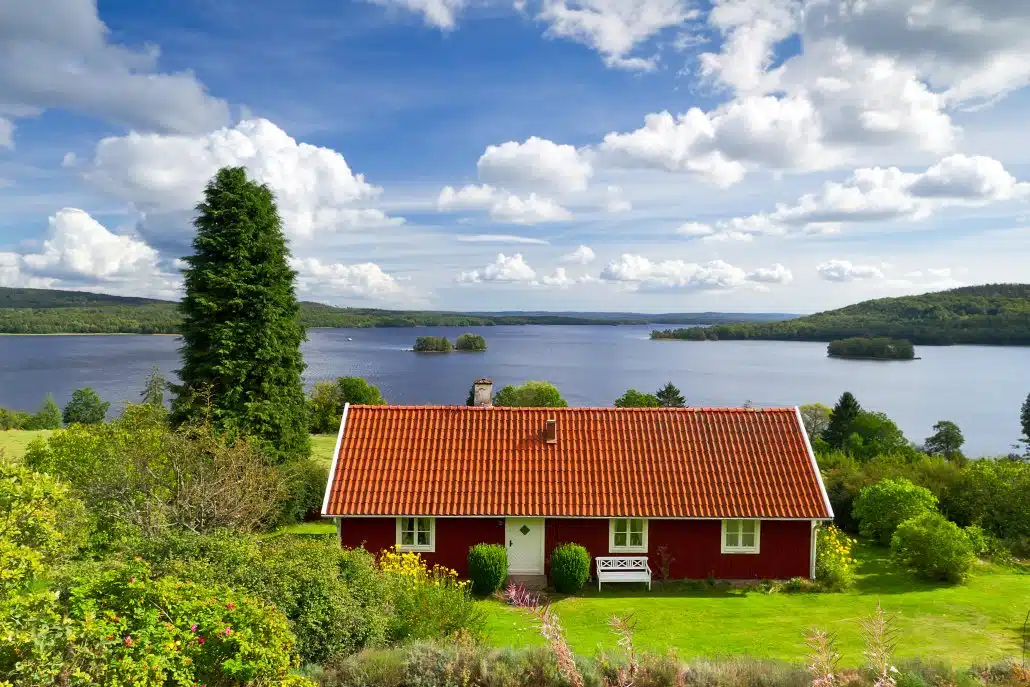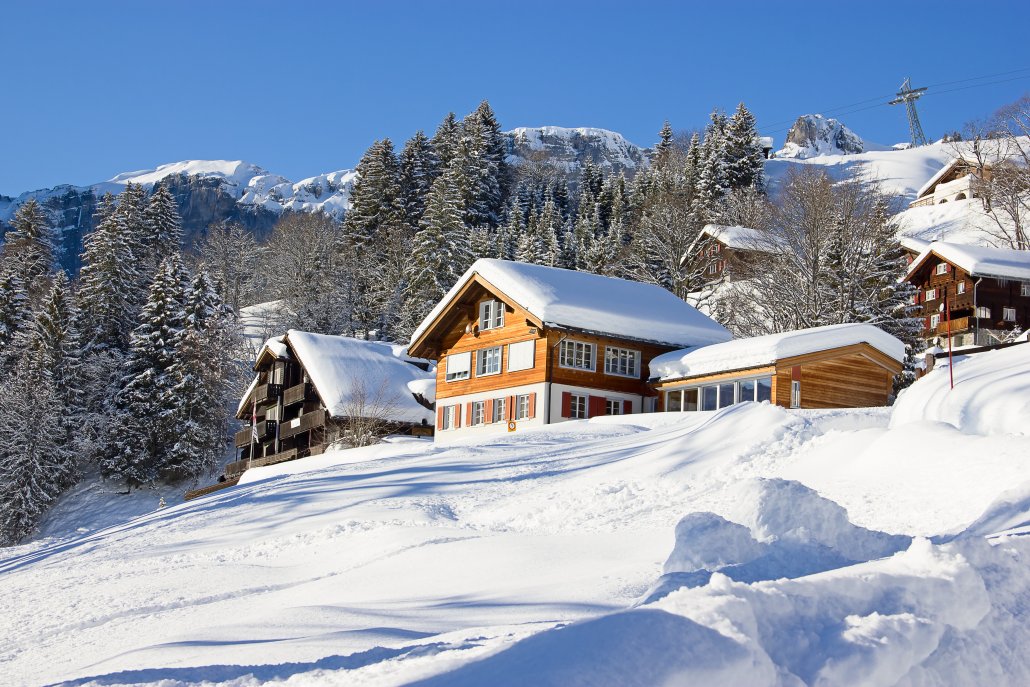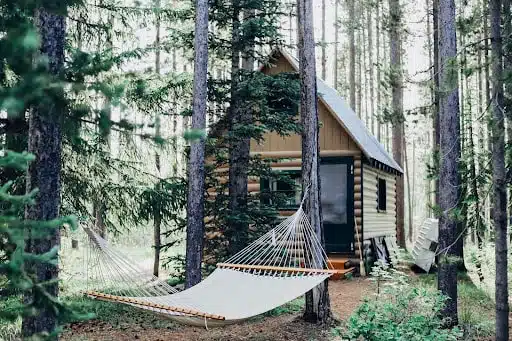Considering starting a vacation rental business? If so, it’s important to do your research beforehand to make sure you are set up to succeed. First, you need to look at the current state of the industry to establish reasonable goals to formulate your plan. So we will start with a look at the most recent industry forecast.

Over the past few years, the short-term and vacation rental industry has seen significant gains in demand and the length of guests’ stay, contributing to an average overall increase in revenue for hosts and property managers. Yet it has also reached all-time highs in the number of listings on the market, making competition fierce.
Most projections see a continued increase in the supply, demand and total revenue for the short-term rental industry, Predictions for the industry are expected to reach $96.85bn in revenue in 2023 and to continue to rise on target with an annual growth rate of 2.69% (Statista).
Under the right circumstances, a short-term rental business can become a relatively passive stream of income, but these results don’t come from simply purchasing a property or two and listing them on Airbnb.
Running a successful vacation rental business requires a business plan, marketing and a financial strategy. It requires research, planning, financial investment and significant time and commitment. It also requires a number of tools that allow you to run your rentals effectively and to grow them into a thriving business – at whichever scale you hope to achieve.
In this article we will cover the basics of how to start a vacation rental business:
- Researching and planning your vacation rental business
- Options for investing in your short-term rental property
- Designing, renting out and maintaining your property
- Insights into tools that help you run and scale your business effectively.
Let’s start with the basics.

What is a vacation rental business?
Short-term rentals (STRs) refer to private properties that are rented out for short-term use (typically from a number of days to weeks). They may be used by travelers, business professionals, nomadic workers or anyone looking to relocate temporarily. Short-term or vacation rentals differ from hotels in that they generally offer more facilities (ie. kitchens, appliances, private outdoor areas etc.), more privacy, and sometimes greater access to authentic, local culture or a unique lodging experience.
A short-term rental business involves acquiring, maintaining, marketing and renting out these properties to guests. Running a vacation rental business may mean that you own your own properties or that you rent and manage the properties for the owner. A short-term rental business can be specifically focused on vacation rentals or leisure properties, which are usually situated in geographic locations that are tourist destinations, or they can be urban rentals that are likely to attract both tourists and corporate travelers. Depending on which population you want to serve, the amenities you provide, your seasonal budgets, your nightly rates and your business plan will need to be adjusted accordingly.
While there are some differences in how one would run a vacation rental as opposed to a short-term rental that is used for other purposes, this doesn’t really affect how you would start the process. Therefore, for the sake of consistency in this article we will be using the term “vacation rental” but the tips here are relevant for getting started with any “short-term rental”.
If you have already acquired a vacation rental and are looking to increase your bookings check out these recent articles for the next steps in your journey:
- The Ultimate Airbnb Host Checklist to Secure More Bookings
- Reducing Double Bookings on Airbnb and Other Channels
- Sustainability Matters: 8 Ways to Make Your Vacation Rentals More Eco-Friendly.

How much profit can I make from vacation rental properties?
According to data from Mashvisor from August 2022, the median monthly Airbnb rental income in the US reached $3,196 per property (vs $1,787 for a traditional rental income). These numbers can, of course, fluctuate based on the quality of the property, the level of service provided and the efficiency and effectiveness of internal operations.
No matter what kind of property you’re renting, one of the key strategies for maximizing your profit is implementing a dynamic pricing model that reflects dips and rises in demand. Using a dynamic pricing tool, your prices can automatically be adjusted based on market demand, making it effortless to optimize your prices and encourage bookings. This way, your prices will adapt during shoulder seasons (the periods of time between the peak season and the offseason) and will invite the most revenue possible when people are most willing to pay.
Getting started with vacation rentals
Like any business venture, a vacation rental business requires a multifaceted skill set including savvy in finance, legal, tech, marketing, sales and more. Luckily, the STR community is extensive and there are endless avenues of support available for guidance along the way including online and digital courses, forums, influencers, webinars and in-person events and conferences (check out more of Guesty’s resources for additional tips in each of these areas).
Let’s walk through the basics of the process to get started on your vacation rental business.

Step 1: Crunch the numbers and decide how to invest
Before you commit to any property, you want to crunch the numbers to get an estimate of how much income you can potentially make. This depends on a number of factors including the investment requirements and potential returns on the property. You will need to evaluate the particular property (location, value, cost of repairs, size, etc.), loan or payment details, anticipated income projections, and rental expenses. For more information on how to estimate income on a vacation rental property check out this article on Forbes.
You don’t have to have a large amount of expendable income to start a vacation rental business as there are a number of paths to enter into the industry with or without purchasing a property yourself. When it comes to building a vacation rental business there are a few options; purchasing properties (on your own or with a partner), rental arbitrage or managing properties on behalf of the owners. Let’s delve into these a bit more.
Investing in properties of your own
This option requires significant research into market demand, local short-term rental laws, and other factors to determine which locations are ripe for investment and will draw a steady flow of guests. You will need to conduct price comparisons before you purchase as well as research into average nightly rates of similar properties in the area to calculate your ROI. You will also need to look into mortgage options, downpayment requirements and any legalities around owning a property to rent.
Managing properties on behalf of their owners
These options are less demanding when it comes to start-up costs and may be the way to go – even just initially – if you find yourself lacking the funds necessary to purchase your own units.
Rental arbitrage
Short-term rental arbitrage is when a renter sub-leases a long-term rental property for short-term increments at higher rates. This option is great for those who don’t have money to invest and are willing to take the responsibility onto themselves to market and maintain the property.

Property management
Becoming a property manager for an owner or number of owners allows you to take on the roll of renting and managing the property without having to invest in the property at all. Still, you will need to put in the work and become well-versed in the operations of vacation rental management if you’re going to convince homeowners they should put their keys – and revenue streams – in your hands.
Beyond the property itself, there are other business expenses and factors to consider such as legal implications, financing options and budget. You will need to calculate whether you have sufficient cash reserves for projected start-up costs and slow periods, furnishing and decorating if necessary, unexpected repairs and maintenance, and operating expenses such as booking fees to the OTA sites (such as Airbnb, Booking.com, VRBO and any other sites that you find relevant for your audience), utilities, supplies, etc. In short, like any business venture, you need to work the numbers and have a clear strategy in place.
Once you have the numbers straight, it’s time to further the plan. Determine your budget and use that to plan out your finances, vision and goals. Based on these decisions you can then move on to scoping out your property.

Step 2: Decide on the location for your short-term rentals
Now it’s time to execute the most important part of your plan – acquiring your vacation rental property. The location for your vacation rental property is one of the most critical decisions you will make in establishing your business. Here are some things to consider when weighing this decision.
Proximity to your home: The number one consideration to keep in mind when deciding where to base your business is its distance from your home base. Managing a vacation rental property from afar can have its fair share of challenges, but it can be done successfully if you set yourself up correctly. It is essential to get to know the area and secure reliable professionals to manage, clean and maintain your property. If you are considering running an Airbnb from a distance, speak to some hosts about how they manage their properties from afar.
Seasonality: If you want a venture that churns a consistent profit all year, you’re going to want to open your doors in an urban location or an evergreen vacation resort that draws guests year-round. Alternatively, if you want a seasonal business that sees slower months during which you can catch your breath and work on business strategy or rental maintenance, you can consider remote locations that have more appeal during certain times of the year.
Demand: Choosing a location that draws in a steady and reliable stream of travelers is critical. Do your research to ensure you’re investing in an area with ample attractions and a flourishing tourist scene. You may also consider a location that draws corporate or business travelers or a quieter getaway vibe in a beautiful setting.
Supply: On the other end of the spectrum, you’ll want to make note of the volume of existing vacation rental options in the area. Although most tourist-heavy locations will be swarming with vacation properties, you can zero in on types of rentals that are less common (like villas or apartments) and try to identify ways to differentiate your rental from the current offering.

Step 3: Secure your vacation rental property
Once you’ve determined how and where you are going to obtain your vacation rental property it’s time to act on it! Get to know the market in the area you are seeking and decide on a property using the criteria you’ve identified above. Many hosts start off with property management or rental arbitrage and once they’ve made a little profit, go on to purchasing or co-purchasing a property of their own. Alternatively, they may choose to manage additional properties and build up a business running properties owned by others, which can also be quite lucrative.

Step 4: Getting ready to rent your listing
Once your property is under your management and all of the details are worked out, it’s time to get it ready to rent. It will take some investment to decorate, furnish, and stock your rental but these are key to attracting bookings. At this stage, it’s a good idea to check out local listings to see what types of amenities your competitors are offering. When deciding how to stock your property you can use this checklist to attract more bookings to your rental.
This is the time that you will also need to work out the logistics of your rental including finding any professionals to outsource management services, whether that is cleaning, maintenance, or property management, setting prices and terms of your rental (including any house rules, minimum stays etc.), setting up security (such as cameras and insurance) and any other details that need attending prior to rental.
During this stage there are a few additional decisions to consider:
Do I need to hire staff for my property?
An important decision you’ll need to make is whether or not to outsource operations or hire in-house for tasks like cleaning and maintenance. You may also find you’d like assistance with managerial responsibilities and will therefore need to take time to assemble a committed and capable team. Of course, solo vacation rental managers can do very well for themselves as long as they have the right tools to aid them, which brings us to our next step.
What software is available for vacation rental management?
The rising expectations of guests coupled with the increasingly complex operations of vacation rental property management make implementing technological solutions into your business model a must.
Before you open for business, you’ll want to settle on reliable software that can help you both facilitate efficient operations, like managing listings on multiple booking platforms, and managing your staff. It can also help you deliver quality service and experiences to your guests through automated messages, home automation, custom guidebooks and more.
If you are looking to eventually scale your business, short-term rental property management tools will become an essential part of your operations saving you hours of time and money by automating and streamlining your management.

Step 5: List on OTAs and market your Airbnb properties
Once you have taken care of all the setup, the next step is listing your property on all the relevant channels and diving headfirst into the marketing game. There are many booking sites out there and each has its own benefits. The more distribution channels you use to promote your rentals the more visibility you will have and the more bookings you will get. On the other hand, the more booking channels you use, the more organized you have to be to keep on top of your calendar and inbox to avoid double bookings and maintain good response rates. This is where a property management platform becomes critical.
There is an art to listing your property which includes obtaining high-quality photos and well-crafted titles and descriptions to attract bookings. As you can see, each step of this process involves careful consideration and knowledge to ensure success.

Like any new venture, starting a vacation rental business is no simple endeavor. With the market only climbing in revenue, however, you’ll likely find the reward is well-worth the effort, as long as you take the time to do it right!




